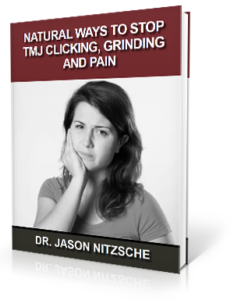 TMJ disorders refer to any condition that affects the way the temporomandibular joint works. This is the joint that connects the lower jaw to the skull. What are the symptoms of such a disorder? What causes TMJ dysfunction? Is there a natural way to get help for the pain?
TMJ disorders refer to any condition that affects the way the temporomandibular joint works. This is the joint that connects the lower jaw to the skull. What are the symptoms of such a disorder? What causes TMJ dysfunction? Is there a natural way to get help for the pain?
The Symptoms of TMJ Disorders
Symptoms may vary depending on the severity of the condition. General symptoms include:
- Tenderness or pain in the jaw that may radiate to the face and neck
- Pain or aching near the ear
- Discomfort when chewing
- Loss of range of motion in the jaw
- A grinding or clicking sound when the jaw is opened
Potential TMJ Pain Causes
This pain can be caused by a number of different factors. Consider just a few:
- Swelling in the joint
- Damage from an injury
- Cartilage damage due to arthritis
These are just a few of the ways the problem can occur. So what can you do to get help with TMJ pain if you don’t want to resort to pain relievers?
To learn more about the connection between head and neck injuries and TMJ download our complimentary e-book by clicking the image below.
Upper Cervical Chiropractic and TMJ Pain
Especially if TMJ pain is caused by an injury, there may be a connection between your neck and your jaw problem. If the upper cervical vertebrae become misaligned, it can result in the tightening of muscles in the neck, jaw, and face. Swelling and pain in the jaw may result.
At the Orlando Spine Center, we use the NUCCA method of upper cervical chiropractic to detect and correct such misalignments. Once the neck is back in the proper position, the neck, jaw, and face muscles can relax. This may result in a return to a normal state with less or even no residual pain.
If you are suffering from TMJ, especially if you have experienced a head or neck injury, come and see us for a consultation.
To schedule a complimentary consultation with Dr. Nitzsche call our Orlando office at 407-578-2225.



Leave a Comment